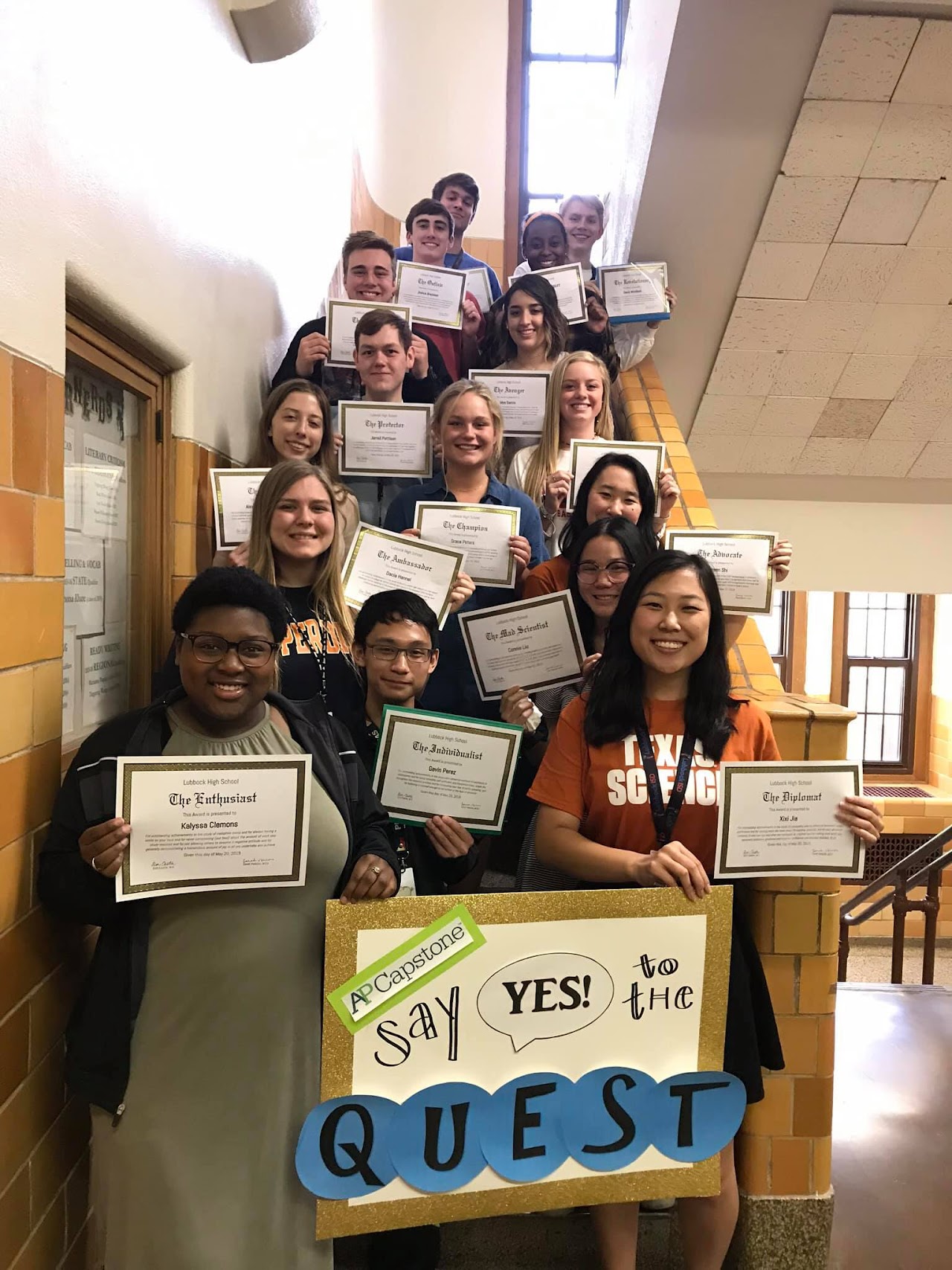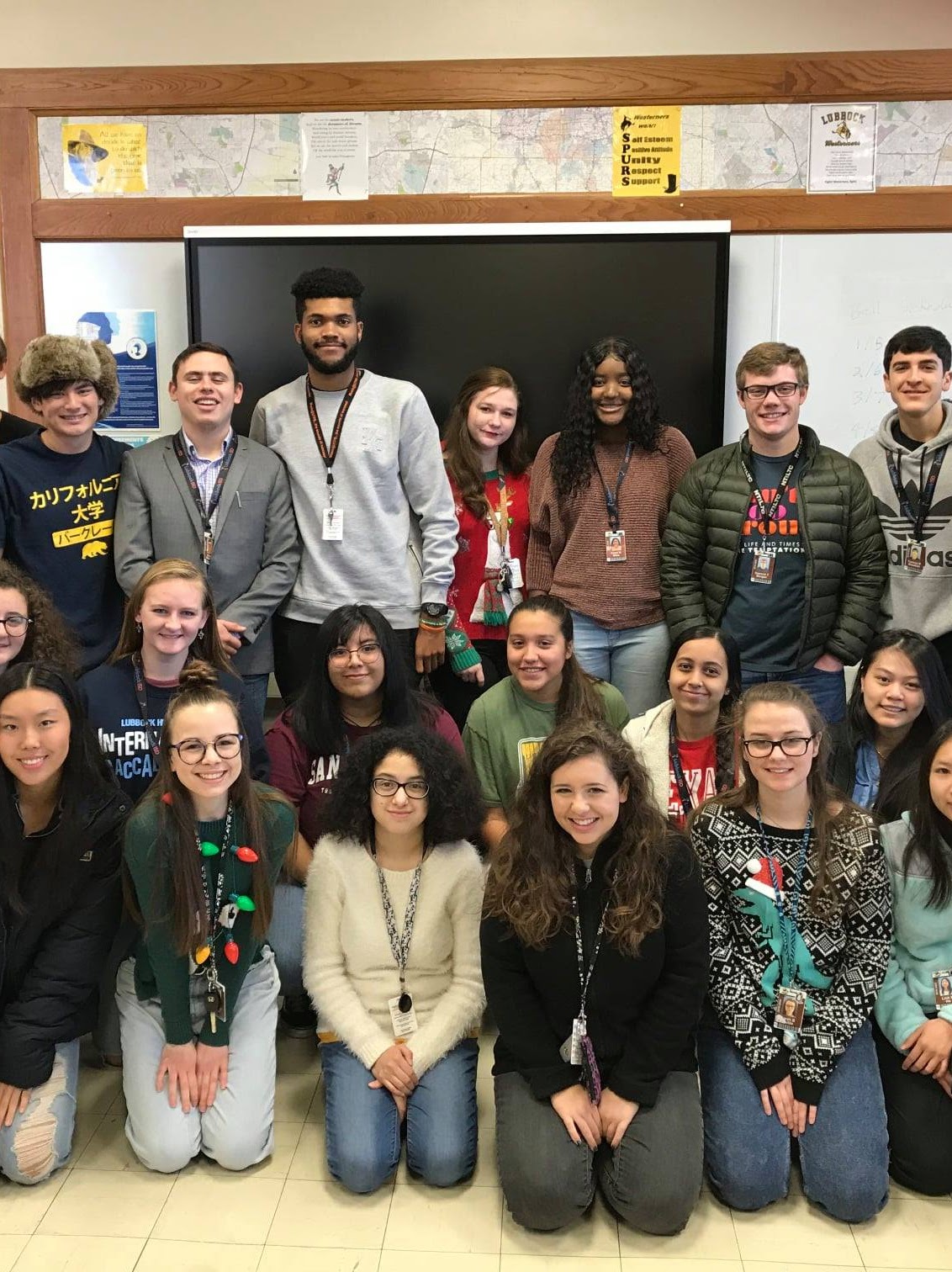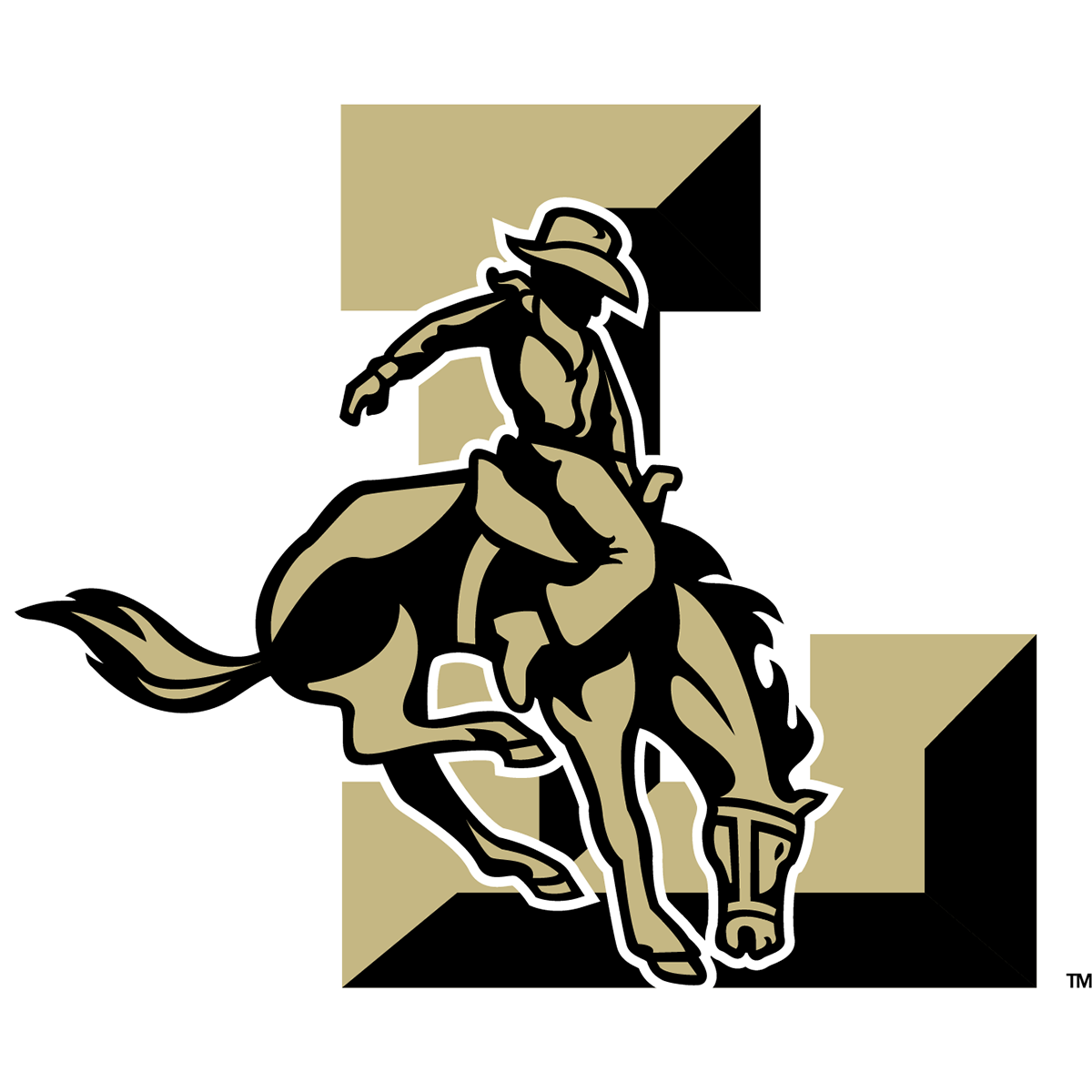Program Structure

How A.P. Cap Works
Junior Year: AP Seminar
Instructor: Shawn Coughlon
Mr. Coughlon has been teaching with L.I.S.D. for 12 years; this is his second year with Lubbock High (fun fact: he is an alumni). He has an English degree from Texas Tech and a graduate certificate in Education from Shenandoah University in Virginia (long story). He is an AP Capstone College Board consultant, an AP reader, and a language guru.
In AP Seminar, you’ll learn to consider an issue from multiple perspectives, identify credible sources, evaluate strengths and weaknesses of arguments, and make logical, evidence-based recommendations. You’ll investigate a variety of topics through various viewpoints of your choice. During the course, you’ll complete a team project and an individual paper and presentation, as well as take a written end-of-course exam. These components contribute to the overall AP Seminar score. AP Seminar is a prerequisite for AP Research. AP Seminar takes the place of one elective course.
Senior Year: AP Research
Instructor: Sarah Vescovi
Mrs. Vescovi has been teaching with L.I.S.D. for 11 years; this is her eighth year with Lubbock High. She has a Master's degree n English Literature from Texas Tech University and is a part-time poet and mystery novel aficionado. She is an AP College Board Reader for AP Literature, a master of research methods, and our local fiction lover and expert.
In AP Research, you’ll explore various research methods and design and complete an independent research project. Your project can build on a topic, problem, or issue you covered in AP Seminar or on a brand new, self-driven QUEST working with a professional expert advisor working in their chosen field.At the end of the project, you’ll submit your academic paper and present and defend your research findings. These components contribute to the overall AP Research score. There is no end-of-course exam.
To see the list of colleges and universities giving credit for the AP Capstone program, click here. Please note: this is NOT an exhaustive list. It has not been updated since 2018. Since 2018, other universities, such as Texas Tech University, have started recognizing the AP Capstone as a Capstone or other required course credit.
To earn the AP Capstone Diploma, students must also earn at least four qualifying scores on additional AP tests from their coursework. Some students enter the AP Capstone program already having AP Human Geography from 9th grade or AP World History from 10th grade qualifying scores and only require two more AP exams. Others will be working both junior and senior year to earn those exam scores of 3-5.
Below is the additional AP coursework available to Lubbock High students.
AP Biology
AP Chemistry
AP Physics 1, 2, and C
AP Environmental Science
AP Government
AP Macroeconomics
AP U.S. History
AP European History
AP Psychology
AP Calculus AB or BC
AP Statistics
AP Spanish Literature
AP Spanish Language
AP German Language
AP French Language
AP Chinese Language
AP Latin
AP Art Studio
AP Language and Composition (English 3)
AP Literatire and Composition (English 4)
AP Computer Science
AP Music Theory

How I.B. Works
The I.B. journey begins junior year and spans the last two years at Lubbock High School. Students choose their coursework based on courses in which they feel they will thrive and grow. The IB requires students to test in six subject areas, take Theory of Knowledge, and complete the Creativity Activity Service and Extended Essay requirements. Students generally have seven IB courses (often including their fine art or other passion as an IB course) and one elective junior year, then six IB courses (again, often including their fine art or other passion as an IB course) and two electives senior year. This structure does not usually allow for ATC classes to be taken in conjunction with IB during junior year, depending on the student's transcript prior to entering the IB programme.
Below are the various course options for each subject of IB. Students are required to take three of their subject exams at the HIGHER LEVEL (HL) and three of their subject exams at the STANDARD LEVEL (SL). Two of the HL exams are decided for students: English and History must be taken at the higher level (and students tend to do incredibly well on these two exams).
Group One: Studies in Language and Literature
IB English III and IB English IV HL (Mr. Jeremy Tow)
Group Two: Language Acquisition
IB French SL (Madame Emily VanDon)
IB German SL (Herr Jeremy Hogan)
IB Latin SL (Mrs. Vikki Rhodes)
IB Mandarin Ab Initio SL (Ms. Amelia Xie)
IB Spanish SL or HL (Señora Maria Lara)
Group Three: Individuals and Societies
IB History of the Americas (HoA) and IB World Topics (WoTo) HL (Mr. Thomas Reynolds)
Group Four: Sciences
IB Biology SL or HL (Mrs. Micki Major)
IB Chemistry SL or HL (Mr. Clinton Smith)
IB Physics SL (Dr. Gerald Bottrell)
Group Five: Mathematics
IB Math Analysis and Approaches SL (Mrs. Jill Gonzalez)
IB Math Analysis and Approaches HL (Mr. Joseph Heinrich)
IB Math Applications and Interpretations SL (Mr. Patrick West)
Group Six: The Arts*
IB Music SL (includes band, choir, orchestra, and piano) (Mr. Chris Jorns, plus your music director)
IB Theatre SL or HL (Mr. Zachery Kocurek-Gentry)
IB Dance SL or HL (Mrs. Savanna Mills)
IB Visual Arts SL or HL (Mrs. Cindy Peanick)
IB Spanish Literature SL or HL (Señor Omar Palafox)
IB Computer Science SL or HL (Mr. Sam Black)
IB Psychology SL or HL (Mrs. Jennifer Harris)
An additional IB physical science from Group 4
*Alternately, the group six subject could be an additional subject from one of the other groups. Those possibities are listed under the arts as well for the sake of simplicity).
Additional components of the IB journey:
Theory of Knowledge (ToK) The goal of this two-year class looks simple: to learn how one thinks. The method for attaining this goal, however, is very complex and requires deep contemplation. Students will receive comprehensive guidance in their quest to understand how one approaches and makes decisions. This course is the center of IB. The instructor for this course is Mr. Nathan Timmons, who is also our IB Lead Teacher. This year long course is taken the second semester of junior year and the first semester of senior year (the first semester of junior year is AP Economics and the second semester of senior year is AP Government, two semester courses required for graduation).
Creativity Activity Service (CAS) The IB takes seriously the importance of life outside the world of scholarship and encourages students to learn through experiences. Students are required to reflect on and document a minimum of 50 hours in each of the three CAS areas. Students journal and keep mementos of qualifying activities. Our CAS coordinator is Madame Emily VanDon. This is an additional component of IB, but not a class.
Extended Essay (EE) The 4000-word essay, an intrinsic part of IB, is an in-depth study of a limited topic within a subject area. Its purpose is to provide candidates with an opportunity to engage in independent research. Emphasis is placed on the communication of ideas and information in a logical and coherent manner. Our EE coordinator is Mrs. Jennifer Harris. This is an additional component of IB, but not a class.
